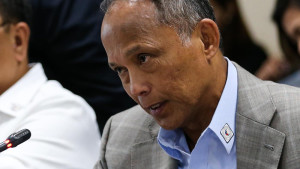Inflation rose at its fastest pace in 18 months last September as prices of food and nonfood items picked up ahead of the holiday season.
The 2.3-percent headline inflation posted last month was the highest since the 2.4 percent in March 2015, bringing the end-September average to 1.6 percent, the Philippine Statistics Authority reported Wednesday.
“The increase in inflation can be attributed to the decline in production since August and the low base effect for nonfood items,” said Rosemarie Edillon, deputy director-general at the National Economic and Development Authority.
In September, the acceleration in prices emanated from the heavyweight food basket (up 3.1 percent), utilities (up 0.9 percent) and transport (up 0.2 percent), noted Bank of the Philippine Islands economist Nicholas Antonio T. Mapa.
Despite posting a rate of increase in prices of basic goods that was faster than a month ago’s 1.8 percent and the year-ago’s record-low 0.4 percent, Bangko Sentral ng Pilipinas Governor Amando M. Tetangco Jr. said September’s turnout was “consistent with our expectation that inflation will slowly inch up toward the national government target range over the policy horizon.”
Hence, “this also confirms that, at the moment, there is no compelling reason to change settings on our policy rates,” Tetangco said. The BSP has kept key interest rates steady since September 2014.
The government’s inflation target for 2016 is 2-4 percent, but the BSP last month slightly cut its forecast to 1.7 percent from 1.8 percent previously on expectations of manageable inflation in the near term.
Tetangco nonetheless said the BSP was closely monitoring developments such as financial market volatility, as well as the “impact of possible adjustments to the tax structure on consumption patterns.”
Although the House leadership was cold to a number of provisions of the Department of Finance’s tax reform package, especially the plan to remove the VAT exemption of senior citizens’ nonessential purchases, the DOF was hoping to pass the first package in the first half of next year.



